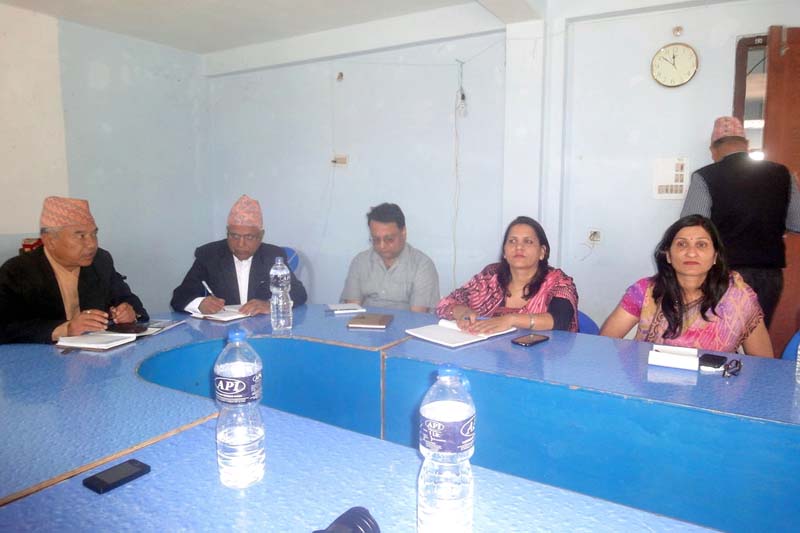‘At least three more years needed to complete task’
Kathmandu, November 14
As less than three months remain for the expiry of the tenure of two transitional justice mechanisms —Truth and Reconciliation Commission and Commission of Investigation on Enforced Disappeared Persons — members of these bodies have said they needed ‘at least three more years’ to complete their tasks.
However, the Enforced Disappearances Enquiry, Truth and Reconciliation Commission Act 2014, which governs these commissions, only allows a one-year extension, and that has already been done. The commissions, formed in 2015 with a two-year term, were awarded a one-year extension in February.
So to further extend their term, which expires on February 10 next year, the act needs to be amended.
The Ministry of Peace and Reconstruction says they have already started drafting the amendment bill, acknowledging that these two transitional justice mechanisms cannot complete their tasks in the given time.
Spokesperson for the ministry Ram Prasad Bhattarai said they were holding consultations with TRC and CIEDP on the draft amendment bill.
“Amendment of the act is high on the ministry’s priority list,” he said, adding that the Ministerial Development Action Committee has also decided that the tenure of these two mechanisms should be extended.
But there’s a catch. The amendment bill needs to be endorsed by the Parliament, which has already been suspended. And, the next Parliament will likely take some time to take shape after the parliamentary elections are over on December 7.
But the government will still have the option of issuing an ordinance, said Bhattarai. “But yes, this needs a broad political understanding,” he said, adding that his ministry was fully committed to amending the bill before the terms of TRC and CIEDP expire.
However, CIEDP member and Spokesperson Prof Bishnu Pathak expressed doubt whether the government was serious about the amendment. He said despite several meetings in the presence of the attorney general no progress had been made. “The government has been expressing commitment to amend the act, but nothing has been done so far,” he said.
Stating that the CIEDP cannot complete its task within the stipulated time, Prof Pathak said it needed an additional three years at the minimum to wrap things up. “At this pace of work, we need at least three years to complete our job,” he said.
According to CIEDP Chairman Lokendra Mallick, investigations have reached ‘advanced phase’ on around 150 complaints out of the total 2,300 the CIEDP recommended for detailed investigation. The CIEDP has received a total of 3,093 complaints.
“Only the job of recording statements of alleged perpetrators remains to be completed in these 150 cases,” he said. “Investigation into other complaints is under way.”
TRC member Madhabi Bhatta too said that the transitional justice body needed at ‘least three more years’ to complete its job given the number of complaints. But for this, the government has to ensure adequate resources, both human and financial, she said.
The TRC has received around 62,000 complaints and it is currently investigating into 7,000 of them —1,000 complaints from each of the seven provinces. It has set up an office in each province for the job.
Another TRC member Manchala Jha echoed Bhatta. If there’s adequate willpower on the part of the political parties and within the TRC, the job can be done within the next two to three years. “But if there’s no willpower, we cannot complete the task even in 10 years,” she said, conceding that the TRC had its share of ‘internal weaknesses which resulted in the slow pace of work’.
“Anything that has hampered our work is the lack of willpower, both at internal and political level.”
Conflict victims, however, said that term extension alone was not going to solve the problem and the government should work to make these two mechanisms ‘functional’.
Suman Adhikari, chairman of Conflict Victims Common Platform, said the government should also evaluate the work progress of the TRC and CIEDP as well as the performance of its members over the past three years. “They even do not know what is to be delivered. They just need to ascertain the truth. No law has barred them from doing so,” he said. “The fact of the matter is they just want to extend their jobs. That’s it.”
The two mechanisms claim that they are making progress, but they have not taken statements from alleged perpetrators, which is the main task, Adhikari said.






